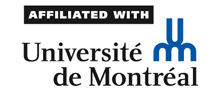By Alexandre Blanchet, University of Montreal
What is the story?
On April 8-9 2015, MEDW co-organized a conference on the state of democracy in Quebec and Canada. Its goal was to assemble professors, politicians, and specialists from various associations of the civil society and from the media to discuss various issues related to the functioning of democracy. In a series a blog posts, we will sum up some of the main arguments and recommendations that emerged out of this conference.
In the first panel, the participants debated various ways to increase turnout and decrease political apathy, especially among young citizens. The panels gathered Michel Venne from the Institut du nouveau monde, Emily Barette from C-I-V-I-X, Eugénie Dostie-Goulet from the University of Sherbrooke, and Léo Bureau-Blouin, former deputy for the Parti québécois.
Voting age and civic education course, and other education-related activities
Venne strongly advocated the creation of a mandatory civic education course in Quebec’s high schools. This course would aim at familiarizing teenagers with the general ideas of democracy and politics. He also argued that we should lower the voting age to 16, and impose an official ceremony that would mark the acquisition of the voting right by young citizens.
Barette expressed some doubts about the creation of a mandatory civic education course in Quebec’s high school. She pointed out that the course was largely ineffective in Ontario, where it was introduced years ago. This failure is mostly explained by the disengagement of the teachers themselves,who often feel uncomfortable with the topic. Instead, she encouraged the organisation of more practical activities such as voting games and simulations. C-I-V-I-X frequently organizes this type of activities with young citizens from less favourable socio-economic background and this is always a success. Combined with a lowering of the voting age to 16, she argued that this helps developing the democratic conscience of young citizens.
Dostie-Goulet agreed that lowering the voting age to 16 is likely to induce some voting habit among young citizens. She also mentioned the various obstacles that would make the creation of a civic education course in Quebec high schools difficult. In particular, she argued that the topic is somehow already covered in another course of the curriculum (i.e., Univers social section). Hence she advocated a more incremental approach based on the organization of various punctual activities such as voting games and simulations, and other projects specifically intended for high school teachers that would raise their awareness regarding the problem of political apathy among young citizens.
Finally, Bureau-Blouin positioned himself in favour of a civic education course in high schools. However, he also expressed some concerns related to the feasibility of such a reform. He reminded the audience that the curriculum is already rather full. He then also encouraged the punctual organization of more practical activities such as those organized by C-I-V-I-X and argued that governments should financially support them. He also agreed that the voting age should be lowered to 16.
Conclusion
During the conference on the state of democracy in Quebec and Canada, several participants debated various ways to increase turnout and decrease political apathy, especially among young citizens. While all them agreed that introducing a mandatory civic education course in high schools would be a good idea, many expressed doubts regarding the feasibility of such a reform. They advocated a more incremental approach based on the punctual organization of practical activities such as voting games and simulations. All participants also agreed upon lowering the voting age to 16.
